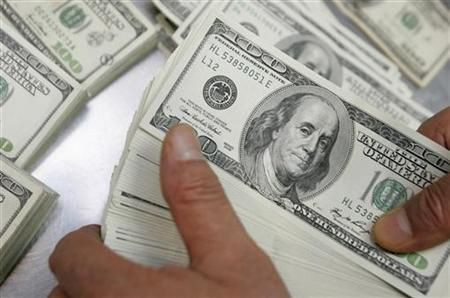Fiscal Cliff 2012: US Companies Race To Pay Special Dividend

One way that companies can make their shareholders happier is to dump some cash in their laps before a looming jump in the dividend tax.
Flush with cash, a record 103 companies have announced this quarter they will pay special dividends before the end of the year, when a steep tax hike to 43.4 percent from 15 percent on dividend payments could come into effect -- barring a deal over the so-called fiscal cliff. Some companies have also moved their planned dividend into late December from early January to help soften the blow for shareholders.
Although Democrats and Republicans could still hammer out a deal that won’t raise the taxes on dividends quite as much, corporate America is not taking chances.
Data firm Markit is forecasting that 123 companies will announce special fourth-quarter dividends, compared to the previous average of just 31.
Costco Wholesale Corporation (Nasdaq: COST), the warehouse merchant, became the latest firm to declare a special dividend. The Issaquah, Washington-based retailer on Wednesday declared a special $3 billion payout.
The company said the $7-a-share payment is possible due to its strong balance sheet and its good access to capital. The payment will be in addition to the regular 27.5 cent-per-share dividend that will be paid on Nov. 30. The special dividend will be paid Dec. 18 to shareholders of record on Dec. 10.
On Monday, retailer Dillard's, Inc. (NYSE: DDS) casino operator Las Vegas Sands Corp. (NYSE: LVS) said they would pay new, one-time dividends next month. Las Vegas Sands Chief Executive Sheldon Adelson, one of the wealthiest men in the world, stands to collect about $1.2 billion from the $2.75 a share special dividend on his 52 percent ownership interest in the company. Meanwhile, Dillard's $5 special dividend will cost the company $235.7 million, much of which will go to its controlling family.
Smaller firms, including Drew Industries, Inc. (NYSE: DW) and Ethan Allen Interiors Inc. (NYSE: ETH) also unveiled special dividends payable this year on Monday.
Wal-Mart Stores, Inc. (NYSE: WMT), the world’s top retailer, last week decided to move its planned fourth-quarter dividend to late 2012, rather than early 2013.
"There are complex fiscal and federal tax rate issues that may not be resolved in the next few weeks, despite the ongoing good faith negotiations between the administration and Congress to resolve details related to the fiscal cliff," Wal-Mart said in a statement. "In light of this uncertainty, the board determined that moving our dividend payment up by a few days to 2012 was in the best interests of our shareholders.”
Almost half of Wal-Mart’s shares are held by the Walton family.
Youth-oriented apparel company Hot Topic, Inc. (Nasdaq: HOTT) and clothing company the Buckle, Inc. (NYSE: BKE) also moved up their quarterly dividend payment.
The 2001/2003 tax cuts were originally set to expire at the end of 2010, though, after months of political negotiations, the rates were extended in the final weeks of that year. Faced with the prospect of higher dividend taxes in 2011, many companies opted to pay one-time special dividends prior to Dec.31, 2010, according to Will Duff Gordon, research director at Markit.
“Special dividend announcements in Q4 2010 spiked significantly higher than in previous years. In other cases, companies with dividend payment dates in early January moved their schedule to accommodate a payment in December,” Gordon wrote in a note to clients.
With the experience of 2010 as a backdrop, strong corporate balance sheets, and management willingness to distribute capital to drive shareholder returns, Markit expects special dividends in 2012 to yield a similar, if not more aggressive, trend as 2010.
Companies have two main ways to return cash to investors: paying money in quarterly dividends or repurchasing shares on the open market.
If taxes do rise, companies are expected to favor using excess cash to buy back their own stocks over issuing dividends in 2013, as capital gains taxes will rise to just 20 percent from 15 percent. The resulting capital-gains rate will still be historically low.
© Copyright IBTimes 2025. All rights reserved.






















